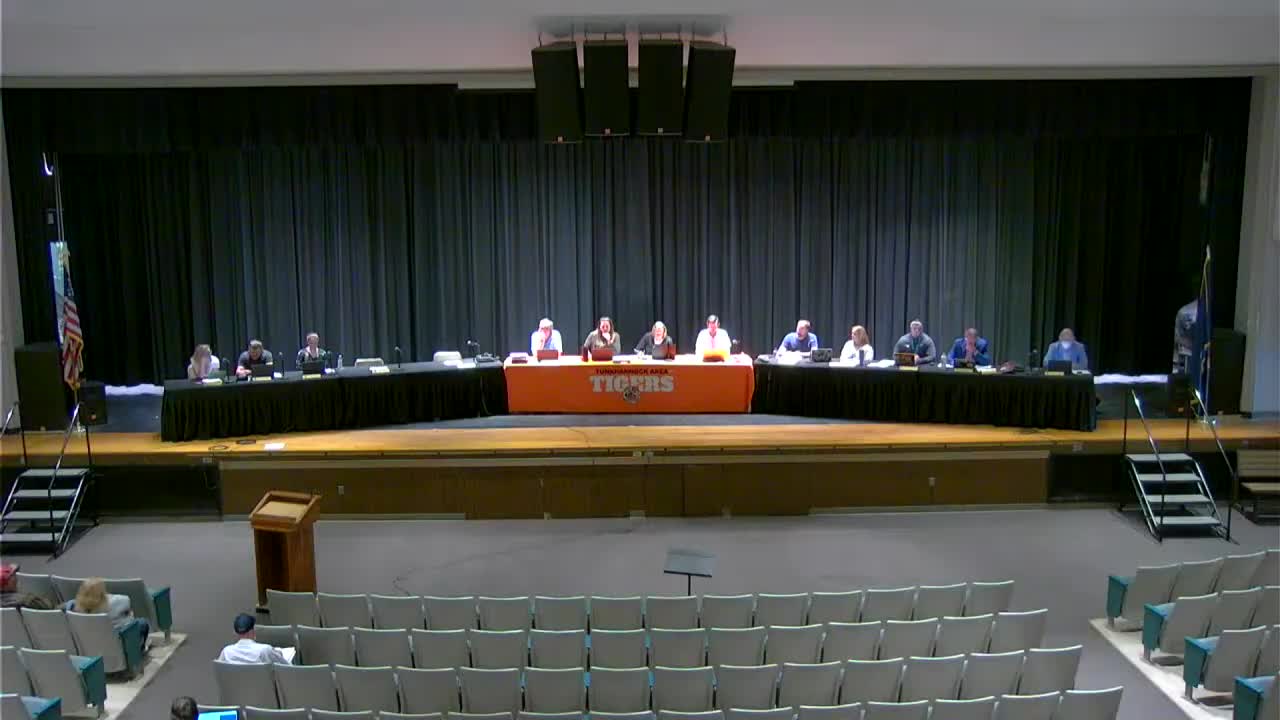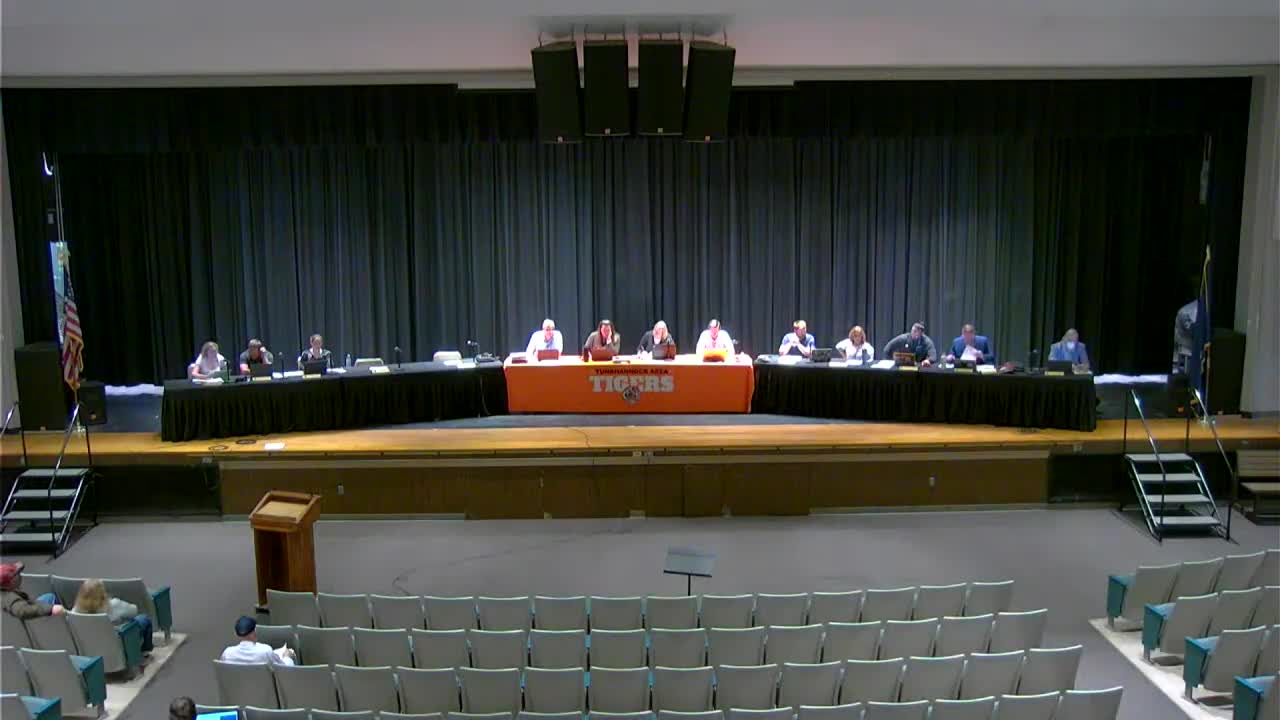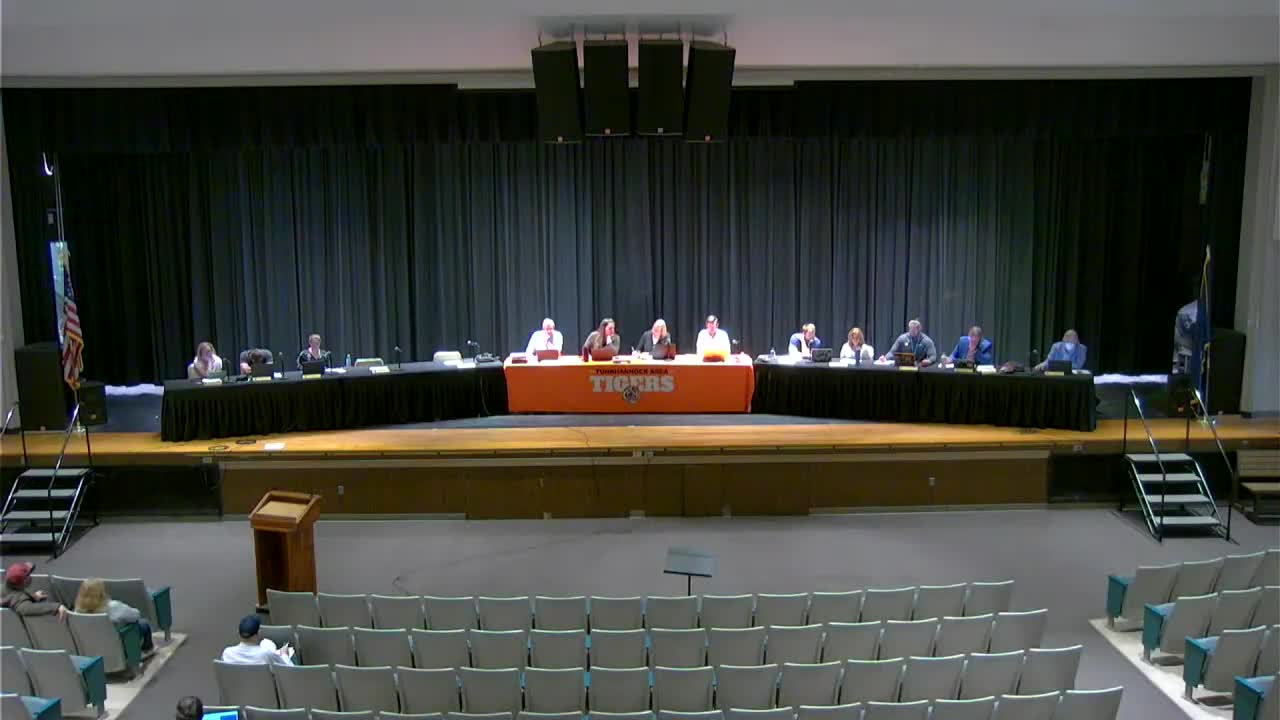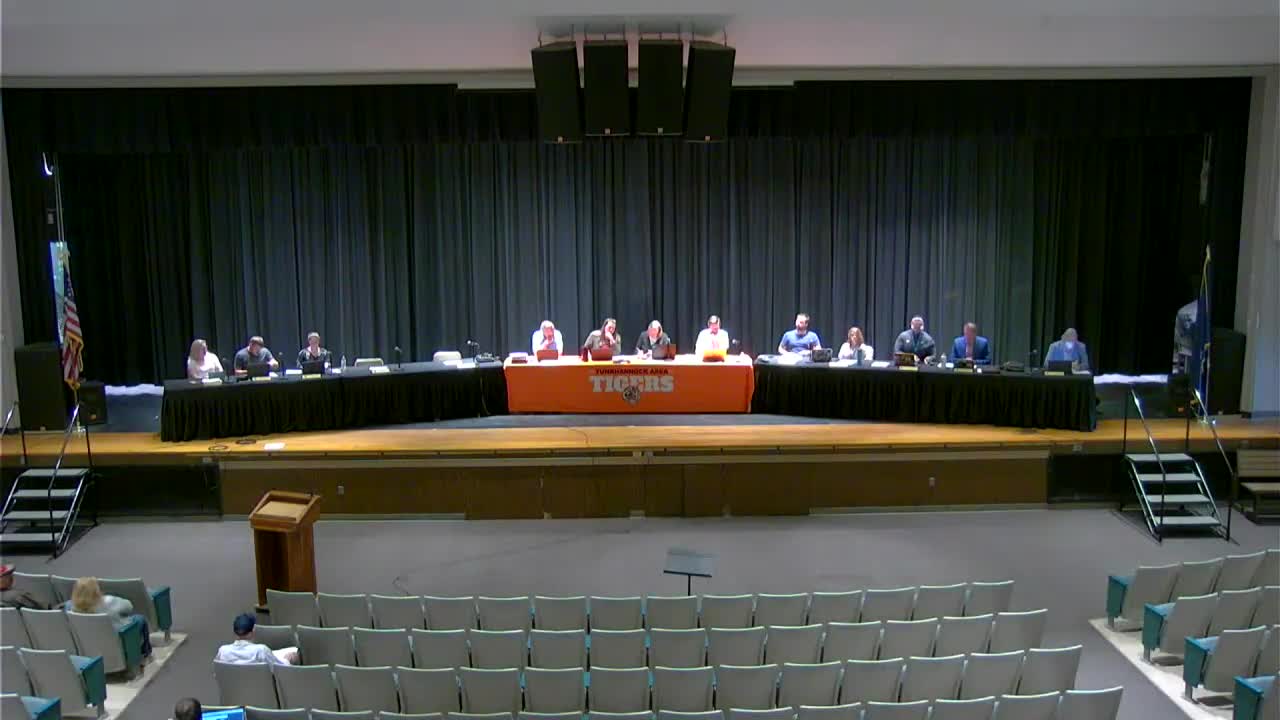Article not found
This article is no longer available. But don't worry—we've gathered other articles that discuss the same topic.

Votes at a glance: Tunkhannock Area SD board approves consent items, contracts and appointments

Board approves two-year contract with Total Grant Solutions to pursue external grant funding

Board hears proposal to increase bussing contractor pay; administrators plan June vote

